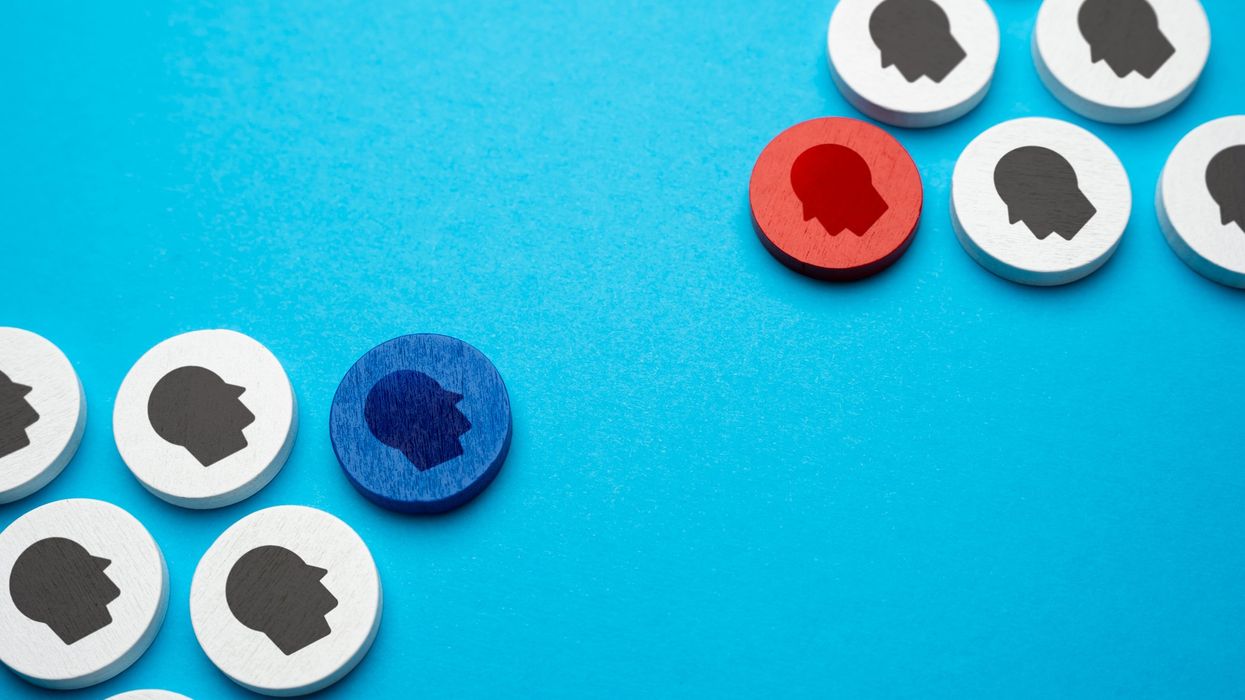It’s time to rethink the notion that we Americans are too polarized to work together and get things done. And it’s time to get clear-eyed about what’s really holding us back and what it will take to help us move forward together.
A few years ago, I engaged cross-sections of Americans from all across the country in 16 in-depth focus groups about how they were feeling about their lives, the country, and our future. These conversations resulted in the report Civic Virus: Why Polarization is a Misdiagnosis.
We released the report at a time when political pundits, researchers, the news media, and others had created a constant drumbeat, saying that Americans are polarized. The initial reception was positive; I appeared on MSNBC’s Meet the Press and had op-eds slated to run in national publications. Then Russia invaded Ukraine and all the attention went to covering the war.
Now, just as Merriam-Webster declared “polarization” their 2024 word of the year, I’m noticing an increasing number of voices, such as pollster Kristin Soltis Anderson for The New York Times, claiming that we aren’t as polarized as we think. Or others, like this data scientist writing for The Daily Beast, stating that the prevailing narrative on polarization gets things wrong.
I know our “politics” are polarized. Yet, I believe the drumbeat that Americans are polarized has increasingly become an excuse for not engaging with one another and, at times, even a smokescreen to justify actions by those who seek to win at any cost. We must get beyond these traps.
When I engaged Americans in our conversations, I discovered something more profound than polarization. The findings reflected years of larger, underlying societal shifts taking root in society. And they were consistent across the country from rural Kansas to urban New Orleans to suburban Connecticut. The report may be even more explanatory and insightful about what’s going on in the country today than when we originally published it in 2022. Rather than finding that people were polarized, we discovered three overarching points:
- People are separating and segregating themselves from one another due to unrelenting fear and anxiety about what’s happening around and to them.
- Many leaders and media are intentionally manufacturing and stoking divisions for their own self-interest, with social media helping create and amplify these divisions. This is producing a ceaseless surround sound that is engulfing people, subjecting them to an alternate reality that confuses, disorients, and destabilizes them.
- Seeing no way out, people are in an instinctive fight-or-flight response, many breaking up into smaller groups and camps to protect themselves and gain validation, while others retreat from engaging at all.
Notice the term “fight-or-flight” in that last bullet. That isn’t a phrase I chose to describe what people told me during our Civic Virus study; it’s one that Americans from across our conversations repeatedly used themselves.
It’s not that people don’t care about what’s happening in their communities and the country; they care deeply, intensely. As one Nebraska woman shared, “People do want to come together and help each other, but they don’t really know how anymore.” If we’re serious about moving forward today, we must recognize that the divisions in the country are intrinsically about social and psychological conditions—such as fear, anxiety, alienation, and a lack of empathy and belonging—rather than about political polarization. We’re facing a particular human dilemma.
As a result, so many people of good faith have thrown up their hands in frustration and retreated from public life. They’re fearful of raising hard issues, disagreeing with others, and being cut down for what they say. Others have decided that the way forward is to come out fighting and seek to win for their side at any cost.
So what’s the answer to this dilemma? I believe what we’re missing today in American society is a way in which people can come together, figure out what they can agree on amid our real differences, and take action. We must build together; talk alone is not enough. This very act of building generates a sense that we’re in something together, we have a shared humanity, and we each hold a sense of agency in moving forward. As we take shared action, we can demonstrate proof that progress is possible—because belief is based on proof—and that we have the capacity to step forward and get things done together.
This missing piece is what I have come to call the new civic path and I believe it must begin in our local communities, where so much of the significant change in American history has originated. In its absence, we will remain a splintered, divided nation.
How we move forward is not easy. But the choice is basic. Surrender to fight-or-flight. Or come together and get things moving again by taking action on issues that matter to people in their daily lives.




















Trump & Hegseth gave Mark Kelly a huge 2028 gift